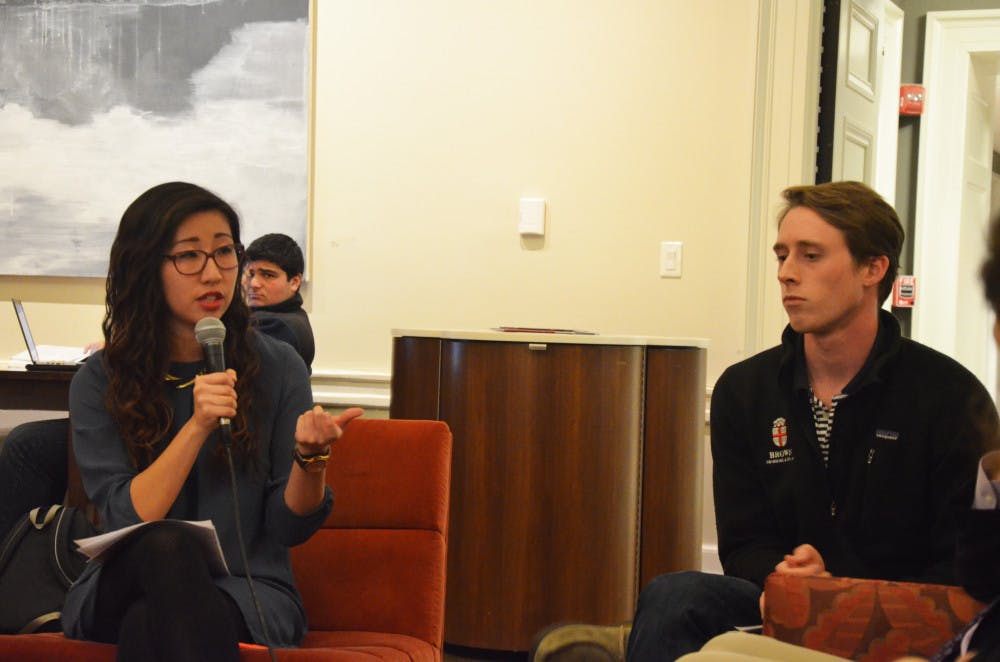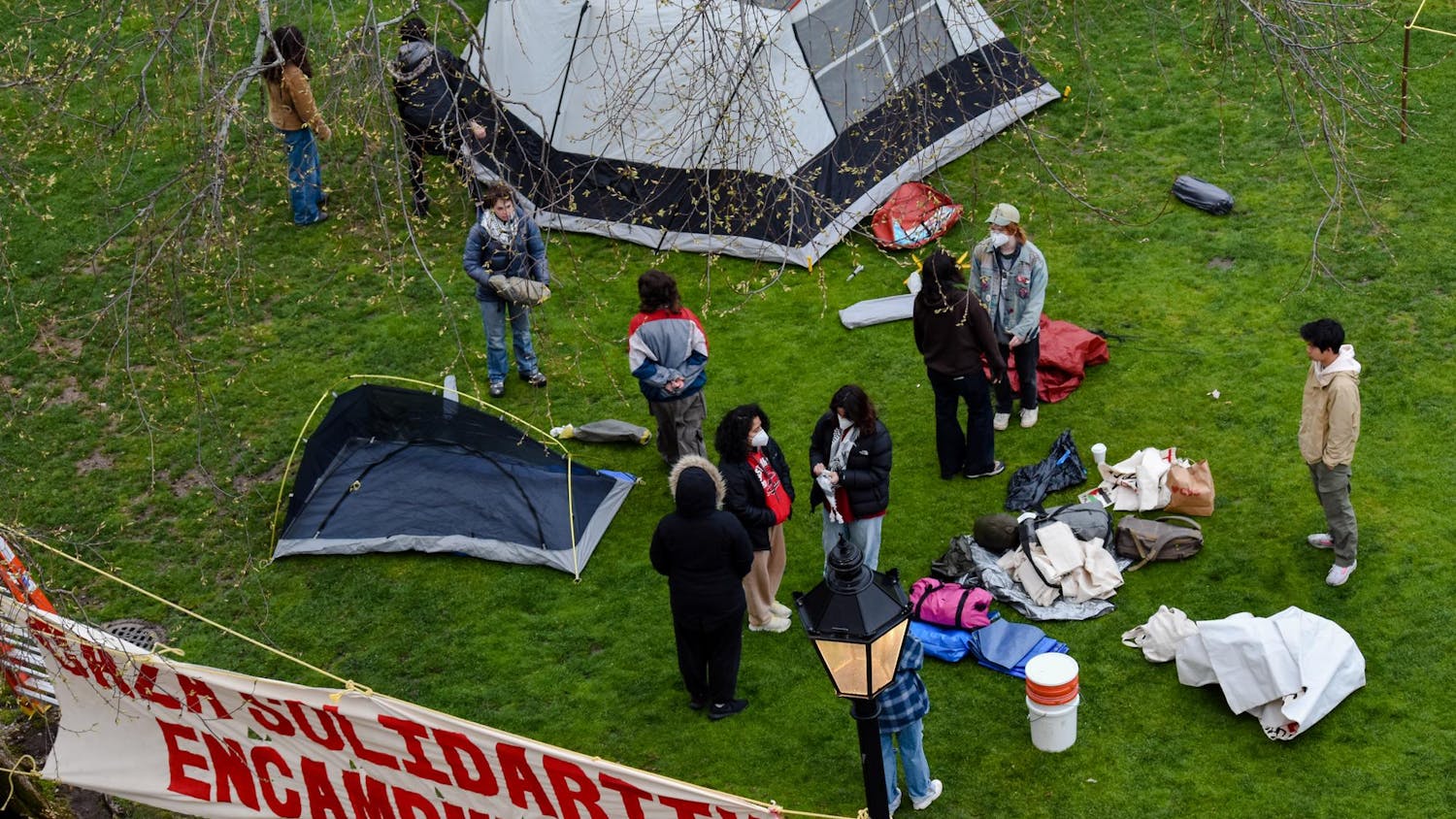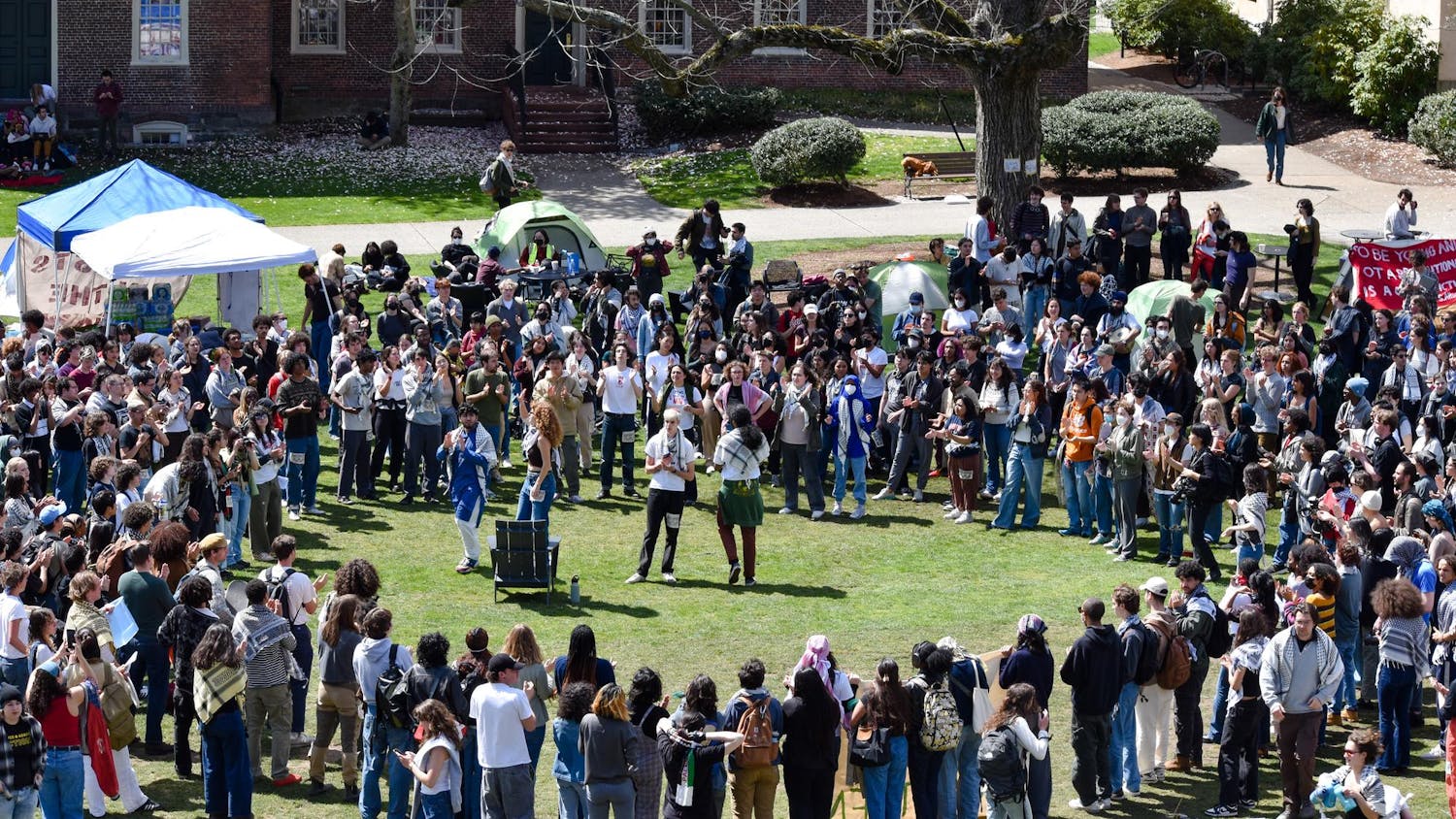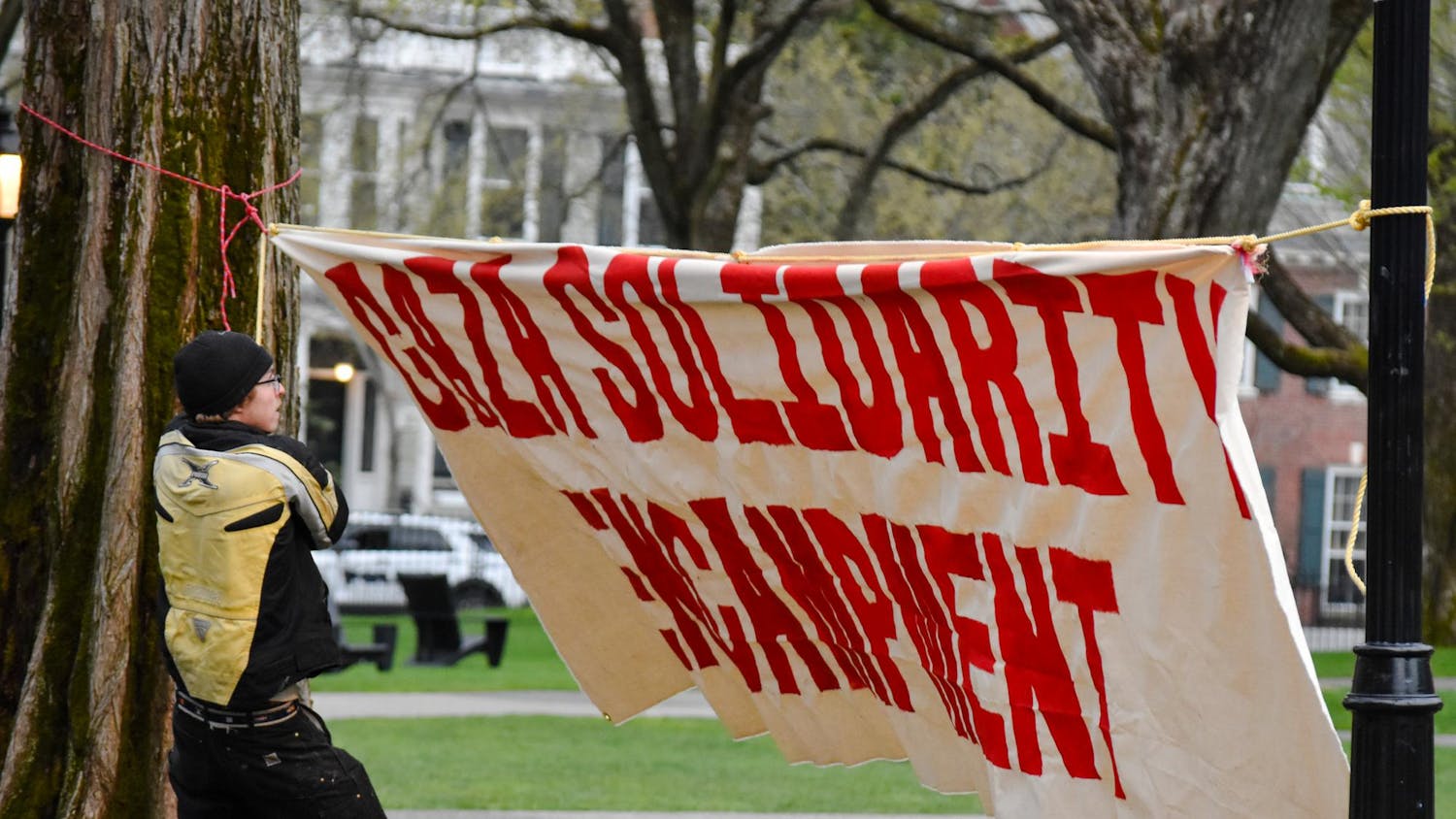Six administrators and students grappled with the University’s presentation and circulation of information during times of crisis at a panel Monday evening. The panel marked the first installment in a two-part series centered on the University’s response to emergencies, tragedy, trauma and unrest.
The two-hour discussion was structured around three specific instances of crisis on campus: the protest and shutdown of a lecture by former New York City Police Commissioner Ray Kelly in October 2013; the date-rape drug and sexual assault cases last October; and the suicide of a graduate student last spring. Approximately 30 students attended some portion of the event.
The series is “an attempt to get the University and the students talking about these things together,” co-organizer Kristina Lee ’16 told The Herald.
The panel’s location of the Leung Gallery in the Stephen Robert ’62 Campus Center, which is “literally located in the center of campus,” gave conversations that typically transpire in University Hall a more transparent platform, Lee said.
Lee planned the event with Jessica Brown ’16, Justice Gaines ’16 and Vice President for Academic Development, Diversity and Inclusion Liza Cariaga-Lo, crafting the night’s questions and choosing the panelists.
Panelist Russell Carey ’91 MA’06, executive vice president for planning and policy, was closely involved in crafting the University responses to all three instances of crisis under consideration.
In determining whether an incident necessitates a campus-wide email, administrators take into account the “breadth, visibility and level of community impact,” Carey said, adding that they also consider laws such as the Clery Act.
Administrators strive for “a balance between communicating quickly but also with as much context as possible” when crafting campus-wide emails, Carey said. They also aim to both “disseminate factual information” and “build community,” he said.
Alissa Rhee ’16, an undergraduate panelist and co-president of the Bruin Club, asked Carey how administrators acknowledged the racialized nature of the Kelly controversy when writing the emails in response. Those emails were crafted by “groups of people that would have benefitted from more diverse perspectives,” Carey said. “The context was not as clearly articulated as it could have been.”
In the communications regarding the sexual assault cases, the administration faced an additional “conflict between individual privacy and what a community needs to be aware of,” Carey said.
Rhee and the other undergraduate panelist Sazzy Gourley ’16, president of the Undergraduate Council of Students, called for administrators to encourage faculty-guided discussion of these incidents and issues in the classroom.
The University has seen shifts in both “what faculty are expected to incorporate” and “student desires and demands,” said panelist Maud Mandel, dean of the College.
As a result of these changes, there has been a “huge learning curve as universities try to think through their shifting demographics,” she said.
In regards to training faculty on how to respond to these difficult topics, “there are resources here, so I just have trouble with claiming a degree of ignorance when it comes to these issues,” Rhee said.
“The resources can be made available, but they’re voluntary,” Mandel said, adding that maintaining faculty autonomy is at the center of every university.
For graduate students who serve as teaching assistants, “there is a lack of communication in terms of who they should be going to” for direction, said panelist Anni Pullagura GS.
“Graduate students are often in a dual role,” said panelist Vanessa Ryan, associate dean of the Graduate School, adding that this necessitates support in their work as students and as instructors.
Crises can affect the graduate and undergraduate populations differently, and the University aims to account for this when developing its responses, Ryan said.
After last semester’s suicide, “the Graduate School followed up with its own communication” and “worked hard to develop graduate-student-only spaces,” Ryan said.
“There was a need for a campus-wide communication as quickly as possible because of the visibility” of the suicide, Carey said. But because this need had to be balanced with the medical and legal processes of ruling a death a suicide, the initial email described it as an “apparent suicide,” he added.
The suicide was a “paradoxical situation” because “everybody knew what had happened before we could talk about it,” Mandel said.
As with all campus crises, the initial communications were followed by information on resources and support available to students, such as Counseling and Psychological Services and the Office of the Chaplain and Religious Life.
In her office, Mandel feels the “secondary impact to the crisis,” she said, adding that students often come to her seeking academic accommodations during these times.
Mandel said when she reached out to faculty members and asked them to give accommodations following the suicide, they were “quite responsive.”
Students who have experienced trauma and who are triggered by campus crises often have difficulty accessing resources, Rhee said. “There needs to be more recognition of the amount of energy that it takes some students to seek those resources out,” she said.
Suggestions for increasing accessibility and outreach are “really welcome,” Mandel said, adding that the University is trying to find more effective ways to communicate resources to students.
The second part of the series will occur Tuesday night in Leung Gallery and feature round-table conversations and student recommendations, Brown said.
A previous version of this article paraphrased Alissa Rhee '16 as saying students often have difficulty accessing resources. In fact, Rhee was referring specifically to students who have experienced trauma and who are triggered by campus crises.





